
Misogyny has reached epidemic levels in the UK, and with the rise of Andrew Tate and the spread of incel ideology, UK cyber hate against women is at an all-time high.
Women are 27 times more likely to face online abuse than men, with 1 in 5 reporting to have experienced it in some form, from cyber flashing to violent threats. And of these, Black and minoritised women are disproportionately targeted.
Women and girls are being put in danger both on and offline - something that was made clear last month when Baroness Casey's landmark report into the Metropolitan Police Force found them to be institutionally misogynistic.
In fact, the 363-page report revealed that 12% of women in the Met have reported to being harassed or attacked at work, and one-third have admitted to experiencing sexism.
But despite its prevalence across the UK, misogyny continues to be overlooked and the government still refuses to take action.
Among those calling for change is women's rights activist Patsy Stevenson.
Here, Patsy sits down with Features Editor Jenny Proudfoot to talk about misogyny, the under discussion of intersectionality and how everyone can make individual change.
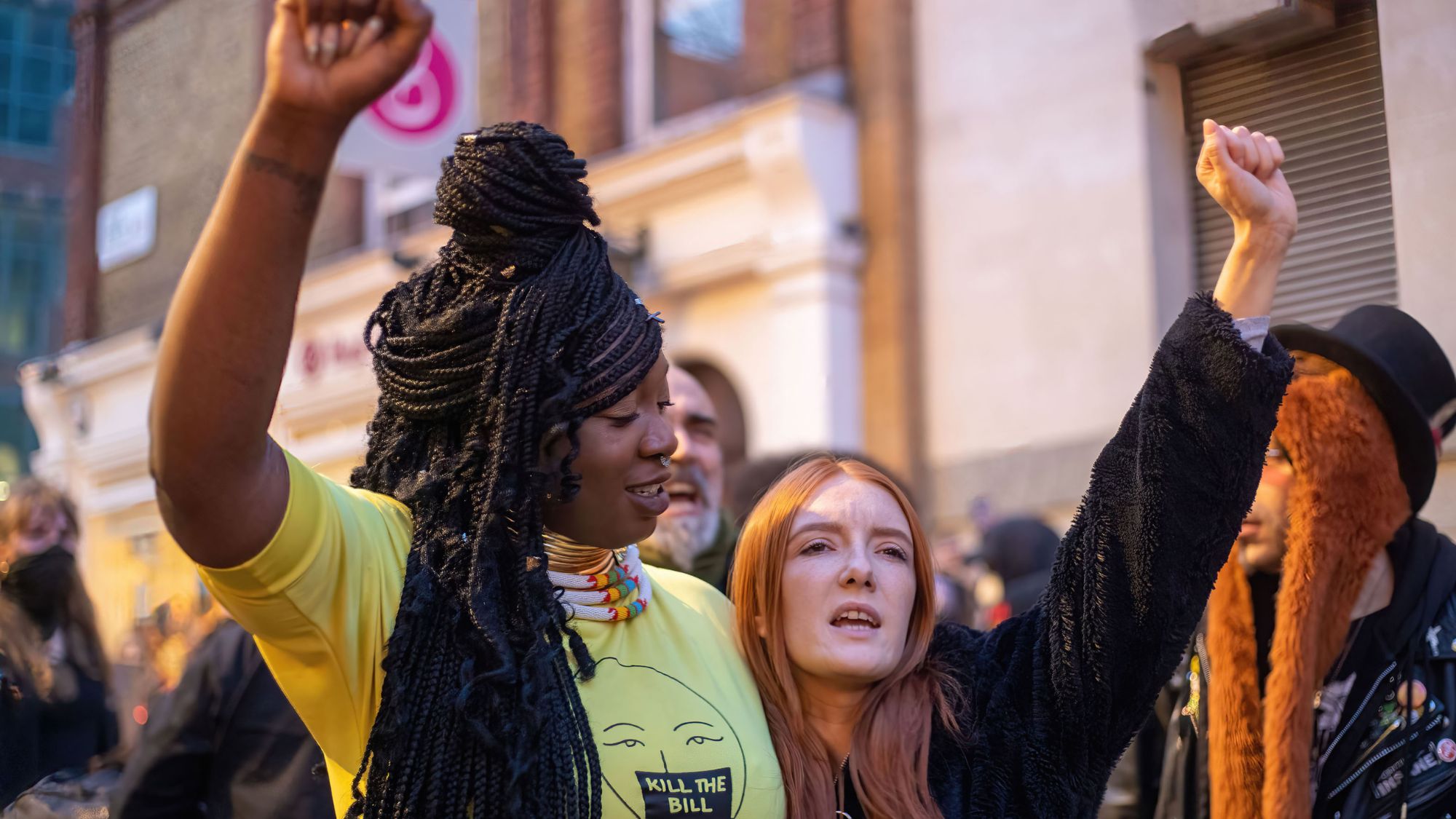
What first compelled you to take action against misogyny?
Not many people ask me that and I think it's actually a really important question. I'm 30 now and people always ask me about my first experience with feminism and how I learnt about it. But really, my first experience was actually with misogyny. I was never taught about feminism - most of my family doesn’t understand feminism or are misogynistic, so I had to learn it for myself. And then when I did learn it, I realised that I had actually been assaulted more times than I can count. I had just always thought it was normal - I grew up in Southend-on-Sea, and I think other people from that area have had similar experiences to myself. So I think realising that, and knowing that I had more bodily autonomy and that you should have a choice with these things, I just broke down. I just thought, I never want another woman to go through what I went through, where in my mid 20s I realised that I've been assaulted so many times. And I never even knew that I could say no, or that it wasn't okay. I actually thought it was normal. Now, I've got cousins who are young black girls, and they will grow up in this world. They will face racism as well as misogyny, and if I could even do a little bit for them, that would be enough. I know that most of the stuff I'm doing probably won't affect much. But in 100 years, if I've even changed one tiny little thing, that's a lot.
You've spoken out a lot against misogyny within the police...
I mean, I used to trust the police, but I wish that I'd listened to people that were telling me that this was going on. I always used to think that if you were arrested, you must have done something wrong. I now know that obviously is not the case at all, and I went through that experience of going from trusting them to really not trusting them. From my own experiences and from hearing from a lot of other people, I just slowly realised that this is actually a huge issue.
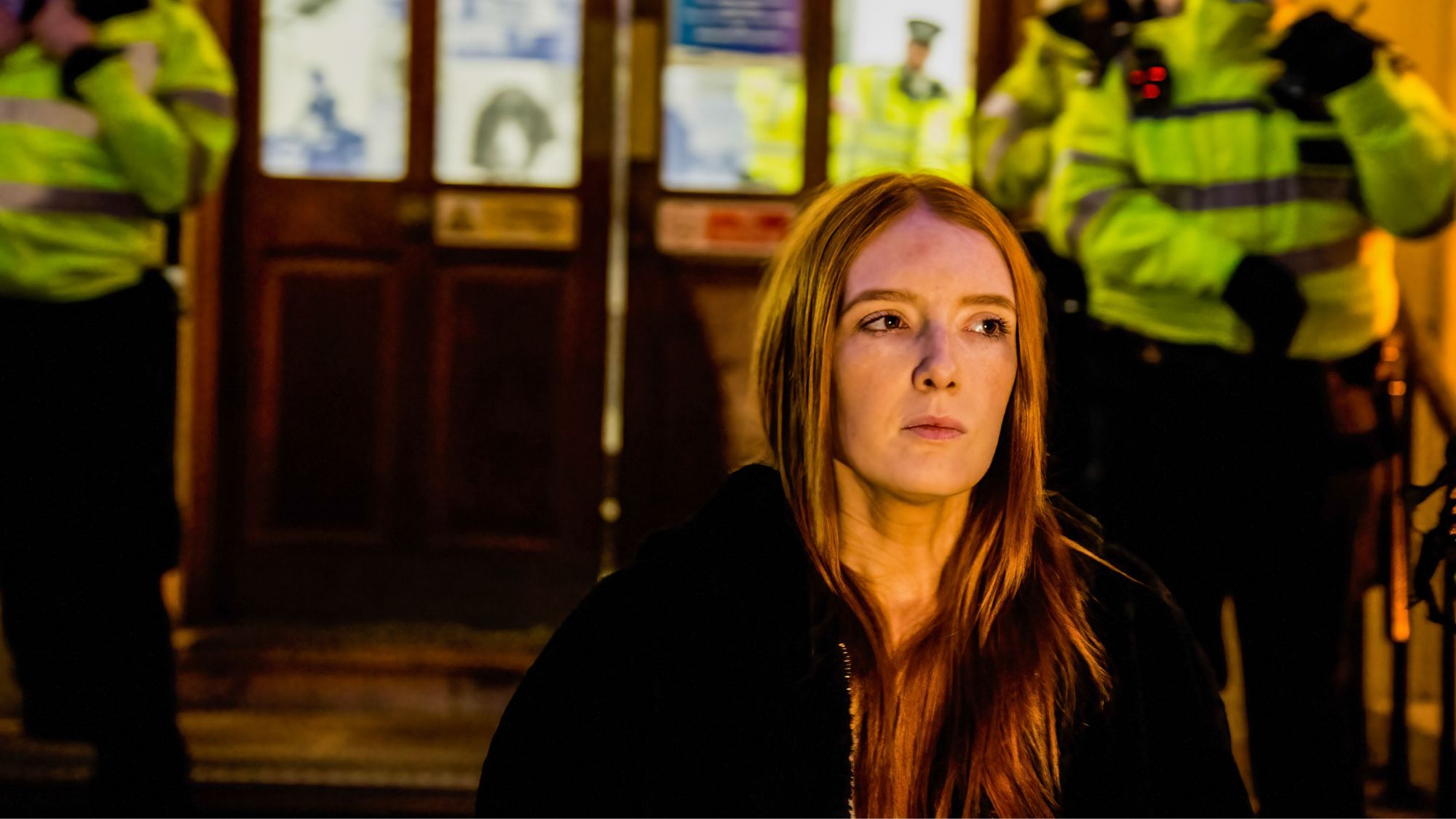
Why do you think there is such deep rooted misogyny there?
Misogyny, racism, homophobia and ableism are so prevalent in society anyway. So when those parts of society are in police culture, you then breed that in that system. Especially when a lot of the people were attracted to the role to be able to control people with a uniform on, and who possibly want to abuse their power. As well as there being hardly any consequences. Look at David Carrick or Wayne Couzens for example. You see time and time again, there weren't any consequences for those people. So with no consequences and being so close to the justice system, I think it ends up just being so prevalent that the top people in the force hide it. Because to be honest, I think if they fired everyone who has had a claim against them (of abuse or racism etc.), they wouldn't have any police left. We’re now seeing Mark Rowley saying that he's going to try and turn it around and investigate things. But as much as his actions so far have shown us a bit of what we hoped they would do, I do think that Mark Rowley is possibly not the best person for it. I don’t think he seems very serious about it all - I think it's just something that he's had to do, because there's so much public pressure at the moment.
It sends a very dangerous message…
I've heard so many stories about people that have been abused by police and often it's by their partner who is in the police force. And they can't do anything, because their partner's friends are police officers, and they can cover it up or say that no one will believe you. So yeah, it's just ongoing. I have friends in the police - I know that not every single police officer is some evil abuser. But if you're allowing it to happen, and if you're not speaking up about this corrupt system, then you are part of the problem.
Last month marked two years since Sarah Everard's murder at the hands of a police officer and the subsequent promises of reform, but has enough or anything actually changed since?
No, not at all. I mean, look at the David Carrick incident that was going on for 20 years and nobody noticed. I think that's gaslighting the public on a major scale. Because you can't say, "we're going to support women and make it safer for them" and "we're going to get rid of the bad apples of this huge bunch". And then have eight people come forward and say that this police officer is abusive and not do anything about it. It's completely contradictory - it doesn't make any sense. And what it shows to me is that they do not care. They care about the public's trust, but they're not putting in the effort to actually regain and rebuild it.
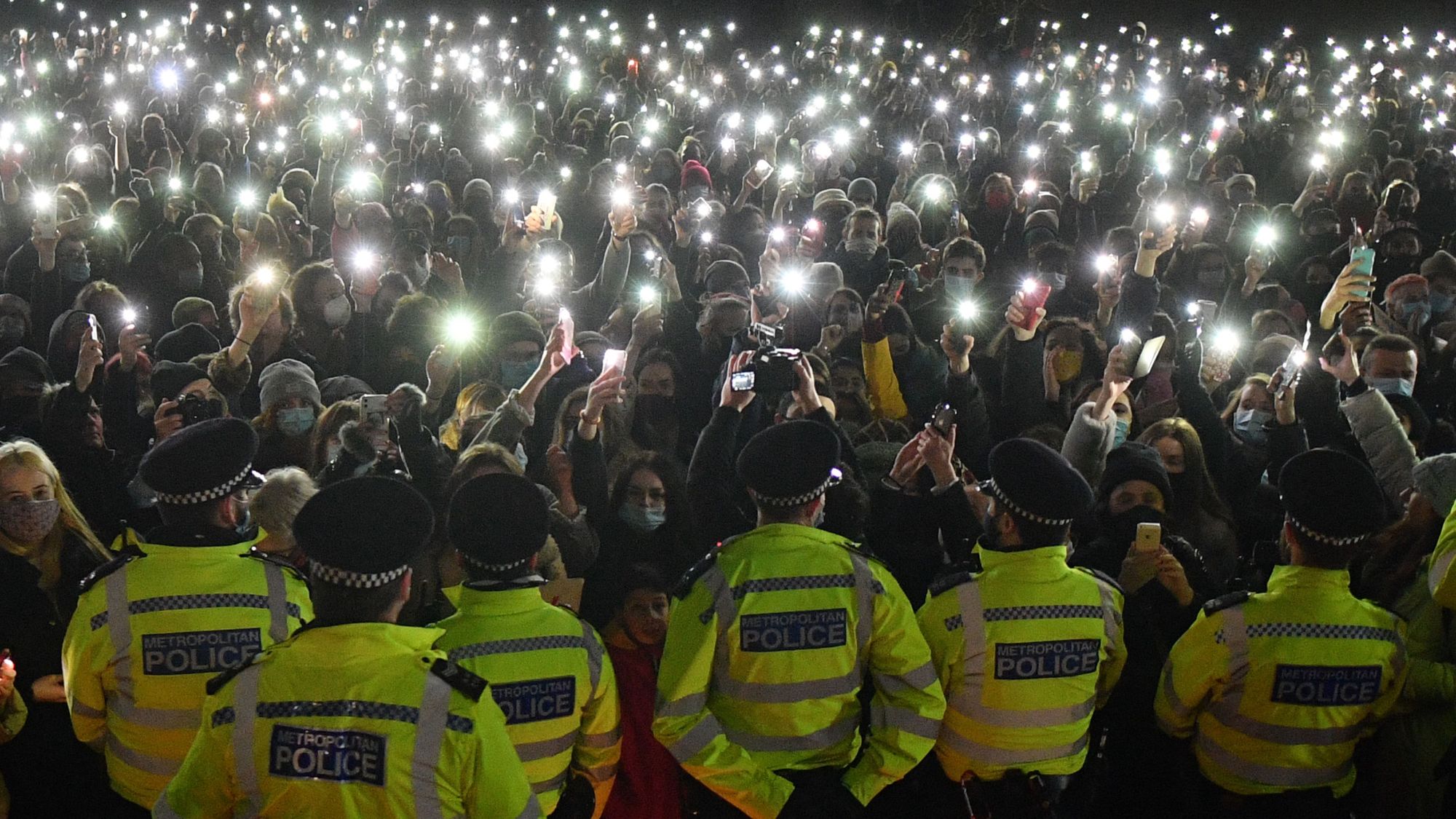
What needs to change to reduce or eliminate misogyny and racism in these institutions?
We need to work on society first. We need education in schools, the code of ethics around certain technology is very sketchy at the moment, and I think that there should be some responsibility on social media sites to inhibit the Andrew Tates of the world. I think that's a societal issue. And when we fix that, it should have at least a small impact. Then within the police, I think misogyny, racism, homophobia, transphobia and ableism is systemic and so ingrained. So I think that the whole system needs to be uprooted, and looked into properly. These 'independent investigations' oftentimes aren't independent - they're actually the police investigating the police. And so we've got activists like Mandu Reid from the Women's Equality Party, people from organisations like Liberty - you know, these great grassroots organisations who have really done their research, who really know how to change things and who are demanding for proper investigations to be done. Because once we've done investigations and we have that information on how much is really going on, then we can look at what we need to do - whether it's a complete overhaul or ripping it all apart and starting from scratch again.
The government chose not to include action against online abuse in its online safety bill. Is misogyny being taken seriously enough from above?
It's not. It's used as a political tactic oftentimes. We’ve seen it with the Public Order Bill as well. The Public Order Bill went through under the guise of putting buffer zones around abortion clinics, so that people aren't harassed when they're trying to get an abortion. Now that’s great, but underneath that, what it’s actually saying is that you can't protest anything. And that by the way, police can also stop and search you for no reason - even though the report into misogyny said that police are stopping and searching “attractive women” for what they call “booty calls”. And now they have even more power to do that. It’s the same problem with the Online Safety Bill - it again has points that would be dangerous, and harmful to women. For example, police would be able to go through WhatsApp group chats and things like that. Unfortunately, what they're doing is putting through bills that are ultimately harming women and marginalised groups every single day. And they're putting it under the guise of “but we're supporting women's safety”. And that's very dangerous.
What can we as individuals do moving forward?
I think it's important to know that activism isn't just going to protests. You can be an activist and a feminist by just talking about things. You know, you don't have to, but having conversations of how male violence has affected you as a person is really impactful, particularly with male family members. If you tell them how you've been affected by male violence, that is one step that usually knocks them into gear, and makes them think: "Oh, actually, this is something". And I think also, if there are any readers who are men, they should really try and be silent when women are explaining what they're going through. They should try to understand what women are saying, and then call out their friends when they see this stuff. Because - and I've said this one thousand times, but these abusers aren't horror movie characters. This is not some scary man down a dark alley, this is your friend down the pub. These abusers are teachers, they are doctors, they are people with a wife and kids. You know, recently it was a police officer. And I think if readers want to get into activism, they certainly can just by having conversations and sharing their experiences.
Is actionable change on an individual level possible?
If there is anything you see that you want to change, you can. I was just one person - I had never done activism before and now I go into parliament all the time. I know people in there, I lobby for stuff, I campaign for stuff and I'm all doing it on my own. I'm not with an organisation or anything like that - and you can fully well do that. If you want to get involved in the political side of things, you can write to your MP. Just contact them and ask to set up a meeting if there's something you don't agree with or want to stop. Recently in my hometown, Southend-on-Sea, they were going to dim the lights at night time to save money. I've been flashed on those streets - and that decision would have harmed more women, so I told them. I wrote to them to tell them that they couldn't do that and that it wasn't OK - and so now they haven't done it. One voice really can make a difference.
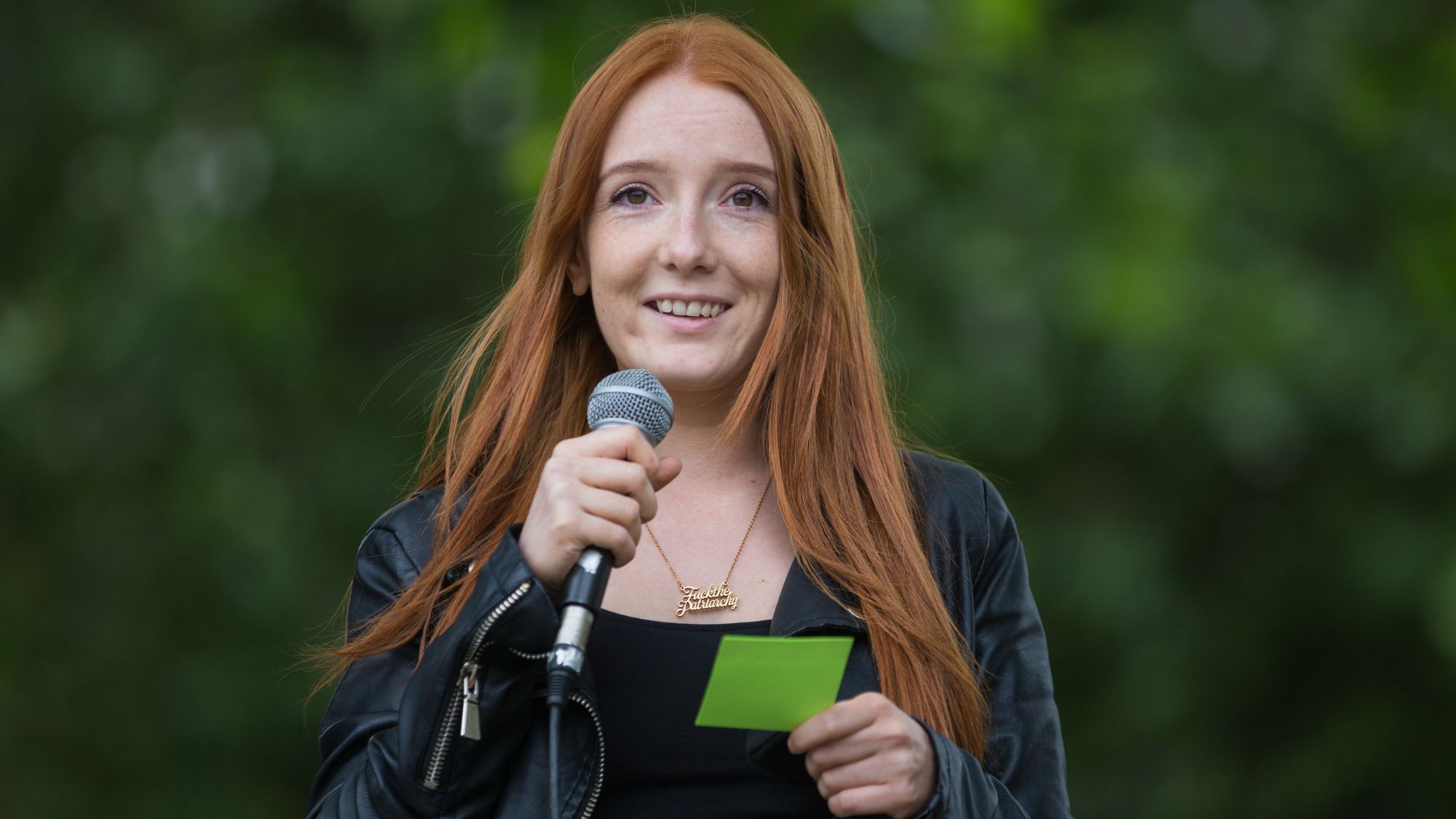
Do you feel that we're seeing a turning point, with a rise in awareness and there now being an open dialogue around these sort of issues?
I think so. Partly because a lot of the news has moved over to social media - especially TikTok. A friend of mine, Sophia Smith Galer, predicted that TikTok would be the next place for news. No one really listened to her at the time, because she's a young woman, but she showed them. She was one of the trailblazers of TikTok news - and I think it's really highlighted the positive side of social media. It's connecting more and more people - the same way that Facebook did for my generation back in the day. It's engaging people in public conversations. And if we use it in the right way and learn from it, social media can be used as a powerful tool for activism. There's obviously good and bad to social media activism, but I think hopefully we are coming to a place where a lot more people are getting involved.
Andrew Tate has obviously dominated the headlines for his role in the spread of online misogyny and abuse, and it's created quite a division...
I think what people need to understand is that there is a polarisation that happens on social media. So with Andrew Tate, half these videos are shown to one demographic and the other half are shown to another. Half of the videos are motivational - telling you that you need to make money, that you need to look good etc. And these are targeted towards young men or boys who don't really have a direction and maybe aren't able to offer women as much as they historically would have been able to. You know, women have good careers now and the pay gap is getting a little bit smaller. It used to be that men had to have a good job, decent income, an alright personality and good looks. Whereas now, there's less dependency, and we're now expecting them to be emotionally mature and intelligent, and have deep conversations. So, people like Andrew Tate really appeal to young boys that feel lost or that are a bit worried about how they're being perceived. But on the other side, a lot of young women and girls are seeing the toxic side of what Andrew Tate is really like. They are seeing that he's abusing women. And so the problem is that when a woman says, “Andrew Tate is really bad and misogynistic”, a man will go “no he's not, what do you mean?” Because they don't see that part of his videos - they see the part that's tailored towards them. So that’s a really big issue that we need to talk about. There definitely needs to be more education in schools about it because Andrew Tate is very dangerous and these young boys are growing up watching him.
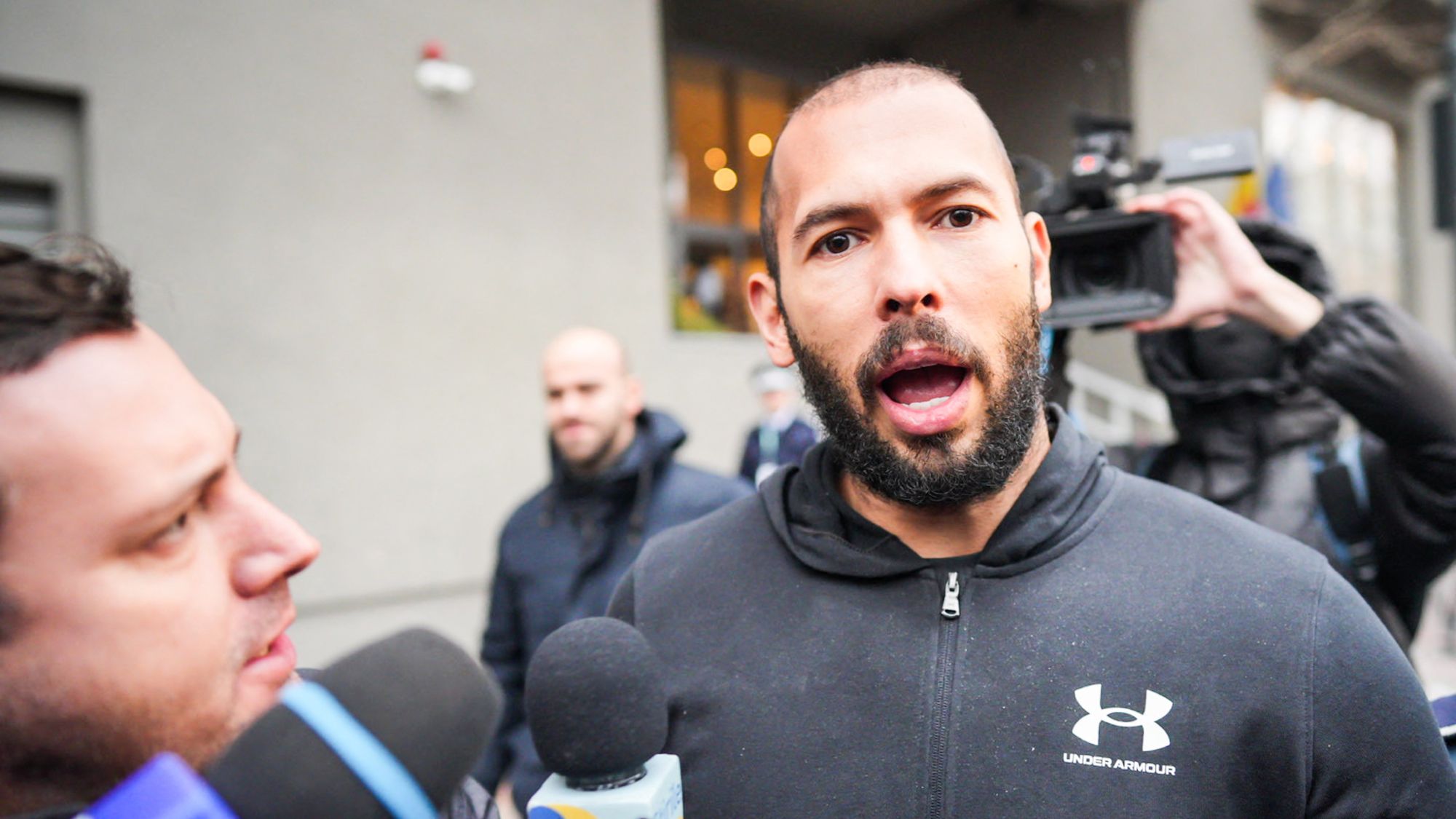
It's scary to think where we will be if we don't take action fast...
Yeah, it's quite scary. And I think one major part actually is that we can't falter where people have before. There's a lot of feminists out there - there's a lot of people that believe in feminism and equality, and they want to fight for this stuff. But then people get derailed talking about other things that don't really matter or that really shouldn't be part of the feminist conversation. We need to come together to make change, and I think there's a lot of segregation a lot of the time. You know, people compare themselves to the suffragettes for instance, but they don't realise that the suffragettes left behind Black women's right to vote, so it's things like that. I think intersectionality is very important if we want to actually elicit some change.
Do you feel that intersectionality is missing from a lot of the current conversations?
Definitely. I have conversations all the time, and I have to check if people are actually been intersectional or not, and a lot of times they're not. I can safely say there's a lot of feminists and feminist organisations out there that genuinely seem to care about the pay check, rather than getting the message across and helping people. And that is a very scary thought.
What's next for you?
I'm writing a book that's going to be published next year. I can't say much just yet but it's about feminism, and it's going to be very intersectional. It's not going to be another sort of white woman take on feminism - it's not like that. Hopefully, it's a book that everyone can pick up and relate to. And hopefully that men can pick up and learn something from, because I think there aren't enough books like that.







